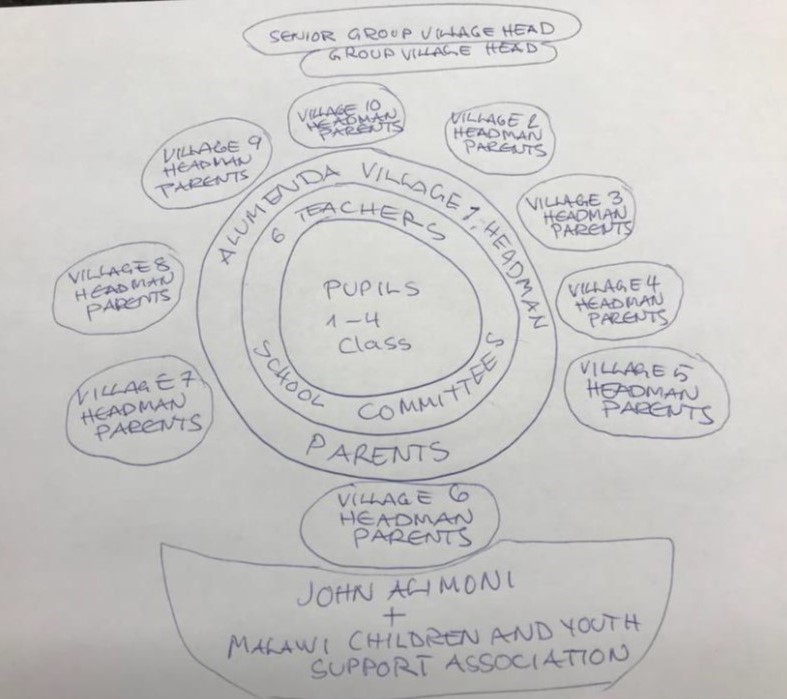Design Challenge:
How might we create a learning environment in our Nyaudzudzu Junior Primary School in Malawi where teachers, children, parents and community leaders join to support every child to achieve required standards in essential subjects by the end of their junior school education?
Introduction:
Adopting new ways of learning and teaching methods by teachers, parents and children is crucial in maintaining a dynamic and an education system that is responsive to evolving society’s needs. All stakeholders in education system are equally crucial in achieving this and more so creating a supportive atmosphere for every child’s learning and boosting their involvement. New teaching methods make learning fun, interesting and relevant while improving learning in regular school subjects and increase student motivation. The experiment aimed at learning how to co-create a supportive learning environment for children in rural Malawi in order to attain essential skills and removing barriers to school attendance, especially for disadvantaged communities.
Results:
The experiment resulted in increased commitment by the community in supporting infrastructure development in the school thereby increasing their school ownership and community reading program to encourage children to read in and out of school. Further, during the experiment period communication barriers were reduced while increasing teachers’ participation through online communications and surveys. While more data will be required to support the cause, there was notable improvement in assessments pass rates of the pupils in standards 1 and 2. The experiment revealed a need for long-term mutual dialogue to support motivation in teachers and other stakeholders to establish trust and increase mutual understanding.
Scaling:
While there are plans to use lessons from experiment to improve learning and childrens’ education experience, there are plans also to further experiment on how to; effectively address children’s and teachers’ absenteeism and co-create solutions together with the community; maintain and improve regular communication and trust between teachers, students, patents, and other stakeholders. These will focus on the needs and welfare of all stakeholders involved, both directly and indirectly, in education system.
